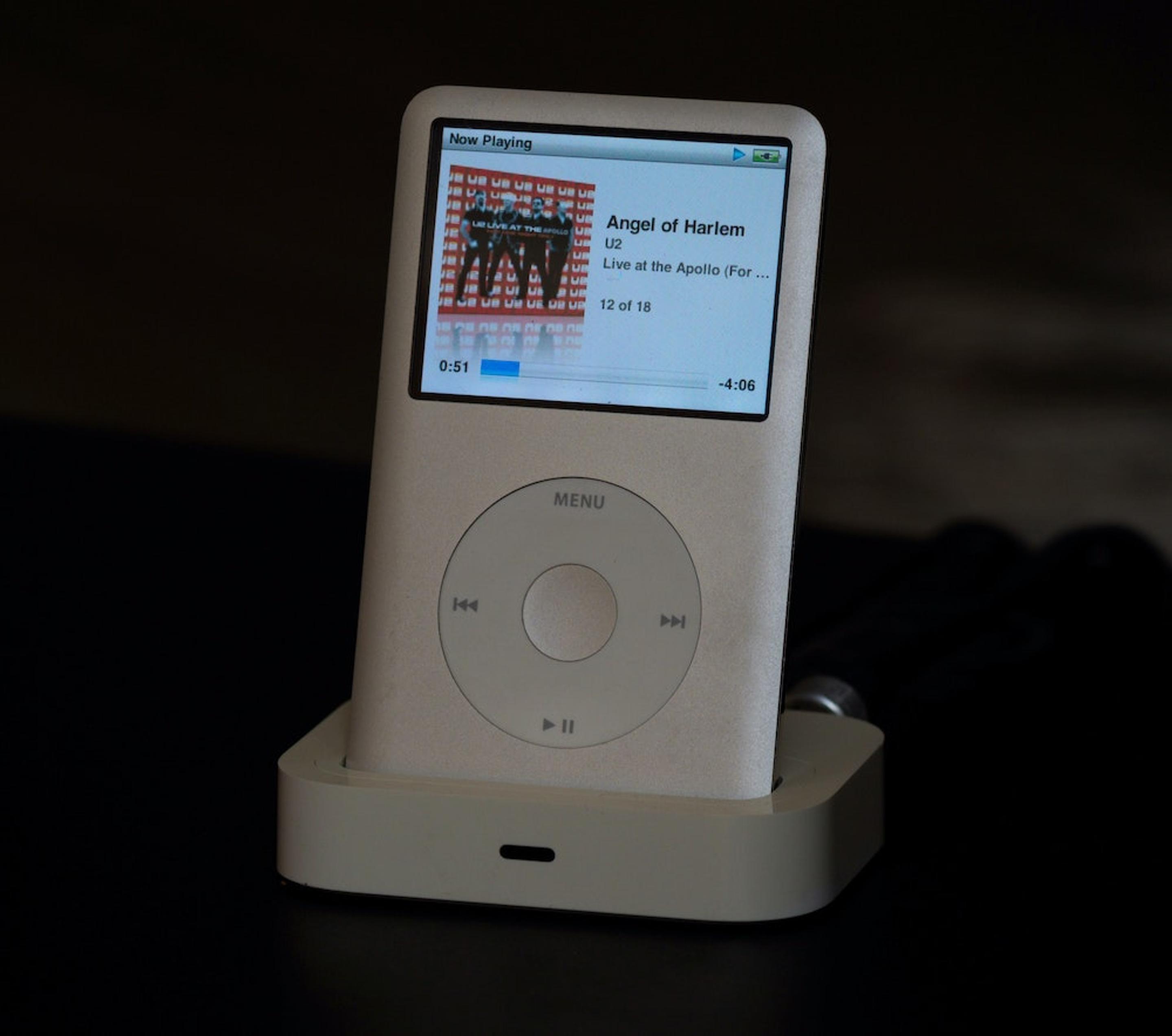How the iPod changed the world – and why its legacy lives on

Apple is discontinuing the iPod. Although the device is being phased out, its legacy lives on in Apple’s products, digital music habits, and in the music and tech industries at large.
Apple released the iPod in 2001, when the way we consume music was starting to change. The world was shifting away from physical CDs, and the iPod was at the centre of these changes, providing people with a new way to enjoy, discover, and experience music in a more fundamental way than the Walkman. Bolstered by the iPod, music became incredibly personalised and carefully curated.
It wasn’t the first MP3 player on the market but the unique design and ease-of-use was the hook that tempted people away from CDs and other brands or MP3s. The iPod combined with the launch of iTunes which followed it shortly after provided a lifeline to the music industry, which was at threat of illegal music file-sharing. It provided the music industry with a legitimate way to make revenue from purchased and legal music downloads, a model which also influenced Spotify. The ability to create playlists was available on iTunes long before Spotify capitalised on it.
Apple took the best aspects of the iPod and integrated it into its other products, eventually leading to its demise. In 2010, as popularity of the iPhone increased, iPod sales begun to steadily decline. Nowadays, iPods are nostalgic – a time machine that transports us back to the early 2000s.
But the iPod is still one of the most innovative products of our lifetime. It led to changes in the way we communicate and collaborate, influencing many other products. For example, it influenced the creation of the Bluetooth speaker (Bose SoundDock 10 incorporated both Bluetooth and an iPod dock). We wouldn’t have podcasts without the iPod – even the very name is influenced by the device.

When Steve Jobs debuted the iPod on the 23rd of October, 2001, he said “With iPod, listening to music will never be the same again,” and he was right, but it has influenced so much more than the music industry:
Changed the consumer market
Though Apple wasn’t the first brand to release a portable music device, it did release the most influential and longest-running one. The reason why the iPod took the world by storm was because its creators analysed where its predecessors were failing to make an impact and ensured the iPod improved or provided these features.
With the availability of a large number of products that work to serve the same purpose, consumers make a choice to go with a product that serves their needs best. This is what the iPod did – it filled a niche in the market to become the product of choice. Through this, it raised the public’s expectations for digital products in general.
Influenced design
Apple’s design is instantly recognisable: sleek, minimalist, and polished. The iPod’s aesthetic can be attributed to some of its success. Its design was definitely ahead of its time, paving the way for one-touch customer experiences.
The design doesn’t have any non functional buttons or flashy unnecessary features. One button allows you to intuitively search your entire collection of music. The touch wheel was a UX innovation, designed to look like a compact disk or vinyl record. It’s so intuitive that it could be picked up by anyone without needing a “how to” guide. It seamlessly solves a problem of inaccessibility.
Changed the user experience
The iPod showed how a digital product could embody the concept of putting the user first in a way that prioritises usability and enjoyment. It sold a product by selling a solution to customer problems.
As Tony Fadell, the inventor of the Apple iPod, said “It’s easy to solve a problem that everyone sees, but it’s hard to solve a problem that almost no one sees.”
Innovations happen when you try to solve a customer frustration – although MP3s existed before the iPod, they had shortcomings, mainly in the form of storage, battery life, size and aesthetics which the iPod solved.
The iPod continues to be an inspiration in the technology industry; particularly when we look at its influence on design and user experience. Although the little music player might feel like a throw-back today, its impact on the world still resonates and we can all keep those lessons in mind.





